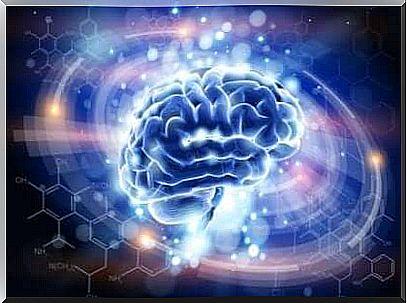Holistic Psychology To Understand Behavior

Holistic psychology focuses on observing how all the different parts of an individual work together to understand behavior, without separating them into specific processes.
Holism in psychology is a term that means that people are much more than the sum of their parts.
To understand what makes people think or behave in a certain way, holistic psychology studies the individual as a whole, instead of just studying one aspect.
There are many factors that constantly interact with each other to influence who you are and what you do. This broad picture is what the holistic studies are trying to sort out.
You can find a very clear example when it comes to the human brain. Everyone knows that the brain contains millions of neurons, or nerve cells.
If you want to understand what the brain as a whole can do, it is pointless to study individual neurons.

Application of holistic psychology
When a psychologist analyzes how different factors interact and affect an individual’s behavior and emotional state, he applies a holistic psychology.
The elements that are examined can therefore vary for each patient.
Some of these include the individual’s home, the people he lives with, the work, educational background, social relationships, how the person behaves in a group, health, experienced well-being and stress.
It can therefore be seen that the patient’s development is about much more than just studying symptoms.
The benefits of this approach to understanding behavior
A holistic psychologist is probably the most effective treatment method. Since she takes many elements into account, there is a greater opportunity to find the root of the problem.
Holistic psychology is also effective in finding more appropriate and potentially better solutions.
This may take longer, but it is a small price to pay to be able to perform better procedures that lead to improvement in the long run.
When studying an individual holistically, you should understand the aspects that influence how he feels mentally, physically and socially. It’s like trying to see a photograph that is only a few inches from your nose.
You may be able to focus on a small part of it, but you can not see what it is you have in front of you until you take a step back and can see the whole picture.
Holistic psychology wants to treat the whole patient, and the only way to do that is to understand who the person really is.
Disadvantages of holistic psychology
As with all areas, this also has its disadvantages. Some problems require a special focus in order to find a solution.
This method makes it difficult to be precise, especially when it comes to research. Studies need clearly defined variables, and therefore holistic psychology is not always compatible with the scientific method.
Holism in psychology is somewhat complex. It is an output to design evaluations and interventions that fit into this approach.
Many psychologists can therefore simply not apply it in their clinical work.

Holistic schools of thought to understand behavior
During the history of psychology, various schools have tried to adopt a holistic approach. Among these we have gestalt psychology, which means that human behavior should be observed as a whole.
Humanistic psychology is another school of thought. In fact, it arose as a partial response to the reductionism of e.g. the psychoanalytic school.
Social psychology uses holistic methods because it takes into account environmental, social and emotional factors.
Holistic psychology is particularly attractive because it often finds solutions that other methods miss.
It evaluates the role that the person’s background has played, how the person lives in the present and how he or she will handle the future.









